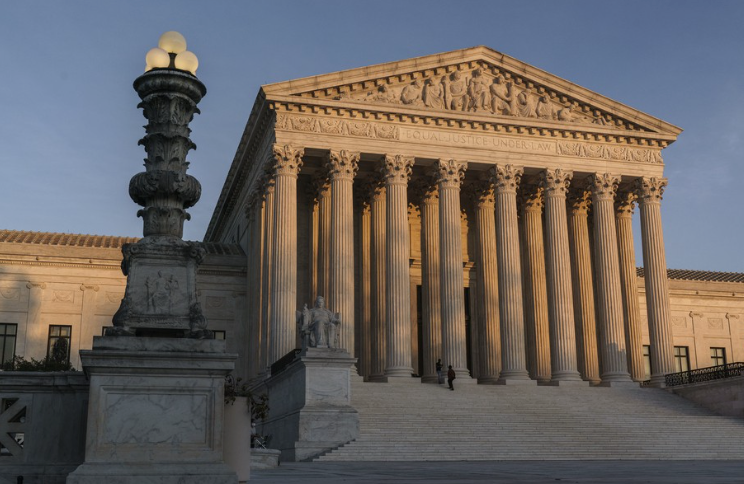The Supreme Court announced on Wednesday that it will hear an appeal that has the potential to disrupt numerous charges connected to the Capitol riot, including those against former President Donald Trump.
The justices will assess an appellate decision that revived a charge against three defendants accused of obstructing an official proceeding. This charge pertains to the disruption of Congress’ certification of Joe Biden’s 2020 presidential election victory over Trump.
This is one of four counts brought against Trump in the case led by special counsel Jack Smith, alleging that the 2024 Republican presidential primary front-runner conspired to overturn the results of his election loss. Trump also faces a charge of conspiracy to obstruct an official proceeding.
The court’s decision to delve into the obstruction charge could potentially impact the commencement of Trump’s trial, which is presently scheduled for March 4. Separately, the justices are deliberating whether to swiftly address Trump’s assertion that he cannot be prosecuted for actions taken during his presidency. A federal judge has already rejected this argument.
The obstruction charge has been filed against over 300 defendants as part of the extensive federal prosecution stemming from the deadly insurrection on January 6, 2021, when a mob of Trump supporters stormed the Capitol to prevent Biden, a Democrat, from assuming the presidency.
Initially, a lower court judge dismissed the charge against three defendants, reasoning that it did not encompass their actions. U.S. District Judge Carl Nichols determined that prosecutors had stretched the law’s applicability too far in these cases. Nichols ruled that a defendant must have taken action related to a document, record, or object to obstruct an official proceeding under the law.
The Justice Department contested that decision, and in April, the appeals court in Washington sided with the prosecutors, finding Nichols’ interpretation of the law overly narrow.
Several defendants, including Trump, are challenging the use of this charge.
One of the defendants, Garret Miller, has since pleaded guilty to other charges and received a 38-month prison sentence. However, Miller, from the Dallas area, may still face prosecution on the obstruction charge. The remaining defendants are Joseph Fischer from Boston and Edward Jacob Lang from New York’s Hudson Valley.
To date, over 1,200 individuals have faced federal charges related to the riot, with more than 650 defendants entering guilty pleas.








